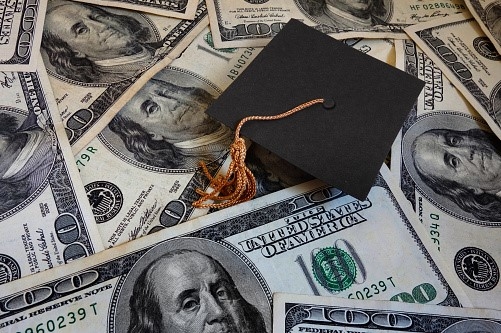You have /5 articles left.
Sign up for a free account or log in.

zimmytws/Getty Images
Colleges send millions of acceptances and denial letters to applicants at the same time income tax filing season peaks. While these two rites of spring seem independent, they come together when alumni make tax-deductible donations to their alma maters. These nominally charitable gifts help the donors’ kids get into college as “legacies.” The Internal Revenue Service should deny income tax deductions for these access-buying “gifts” that perpetuate inequality across the generations.
To encourage giving, the tax code allows donors to deduct charitable gifts from income, reducing income tax obligations. The goal is to encourage charity and good works, not to allow purchases from nonprofits to enjoy tax preferences. Accordingly, the IRS denies tax deductions for donor payments when the donor receives nonreligious goods and services as a quid pro quo for the gift. For example, donors who buy tickets to attend charitable benefit dinners cannot deduct the full price of the tickets. The value of the meal the donors receive is a quid pro quo for the purchased ticket and is not deductible.
Each year, alumni donate over $10 billion to colleges. Many of these so-called gifts involve an implicit quid pro quo -- in exchange for donations, the children of alumni enjoy preferential consideration for admission.
While the exchange of alumni gifts for preferential admissions access is implicit, there are several pieces of evidence that the implied exchange alters the behavior of both colleges and alumni. Elite colleges explicitly give admissions preferences to legacy applicants. Indeed, empirical evidence indicates that legacy status raises the probability of an applicant’s admission the equivalent of a 160-point increase in SAT score.
A primary purpose of this legacy admissions preference is financial. Universities think that alumni give more because it helps their children get into college. As a Harvard University committee that rejected the elimination of legacy admissions preference explained, “Although alumni support Harvard for many reasons, the committee is concerned that eliminating any consideration of whether an applicant’s parent attended Harvard or Radcliffe would diminish this vital sense of engagement and [financial] support.” The conclusion seems warranted. Alumni give more when their children approach college age, and they give more if their children are admitted.
The results of legacy admissions are what you would expect -- the perpetuation of inequality across the generations. Children lucky enough to have a parent who went to an elite college do not just benefit from higher socioeconomic status in childhood, they also are simply more likely to get into that elite college for any given level of performance. This is unfair and antimeritocratic.
Through the income tax code, the government subsidizes this problematic transaction. When alumni trade gifts for preferential access to college, they pay with tax-deductible dollars. The transaction is considered a charitable gift that benefits society. By contrast, other advantages that parents buy for their children, such as private schools and standardized test prep, are taxed like any other form of income and spending.
The IRS should end this subsidy for the well-off and enforce the rule against tax deductions for payments to charities that involve a quid pro quo. A new IRS rule should sort alumni gifts intended primarily to benefit colleges from payments for admissions preferences. When alumni children receive admission to their parent’s alma mater, the IRS should deny all deductions for gifts to that college from the family for the four years before and after the college admissions decision. This rule keeps a subsidy for genuine alumni gifts alive while ending the unfortunate link between college admissions and the income tax code.




